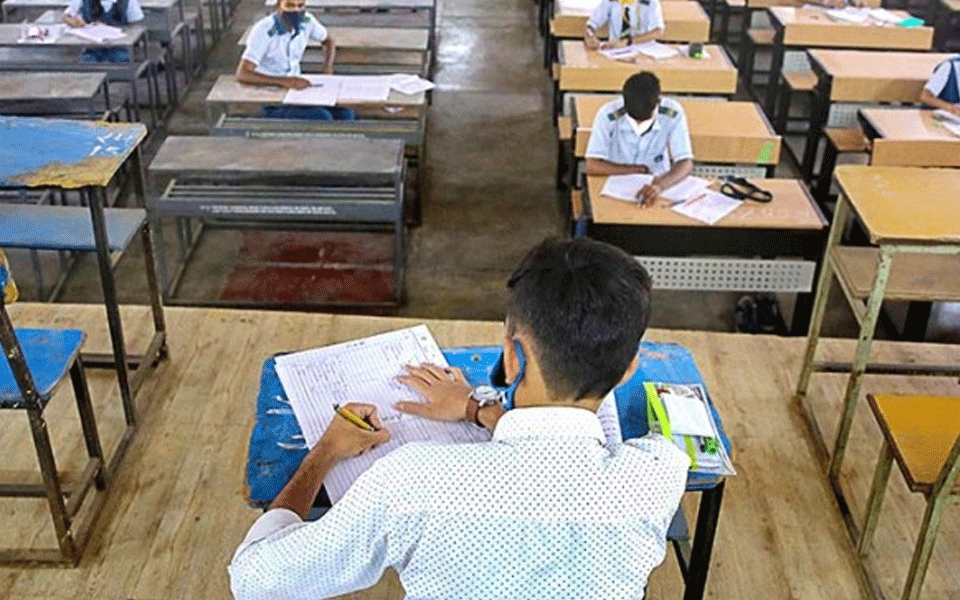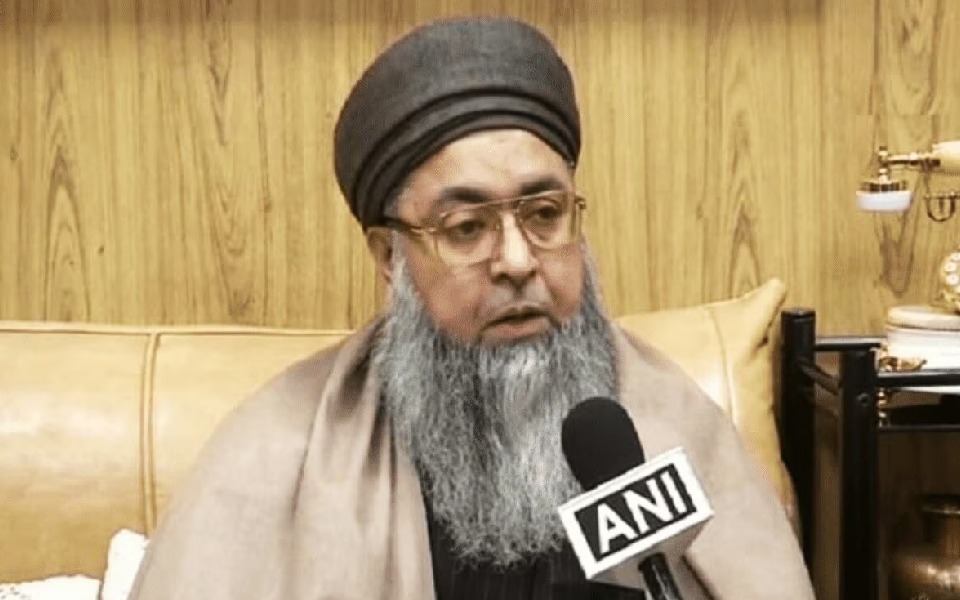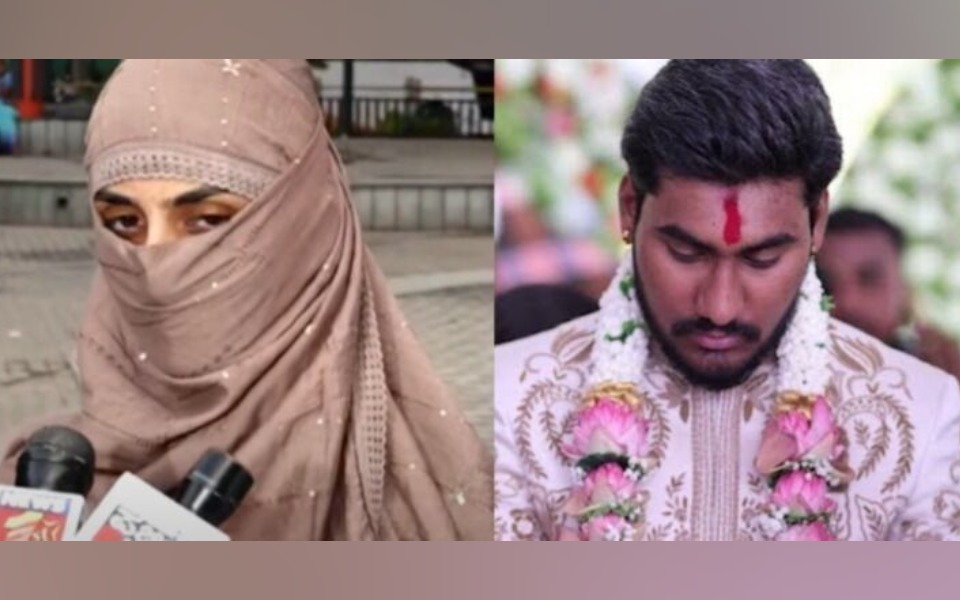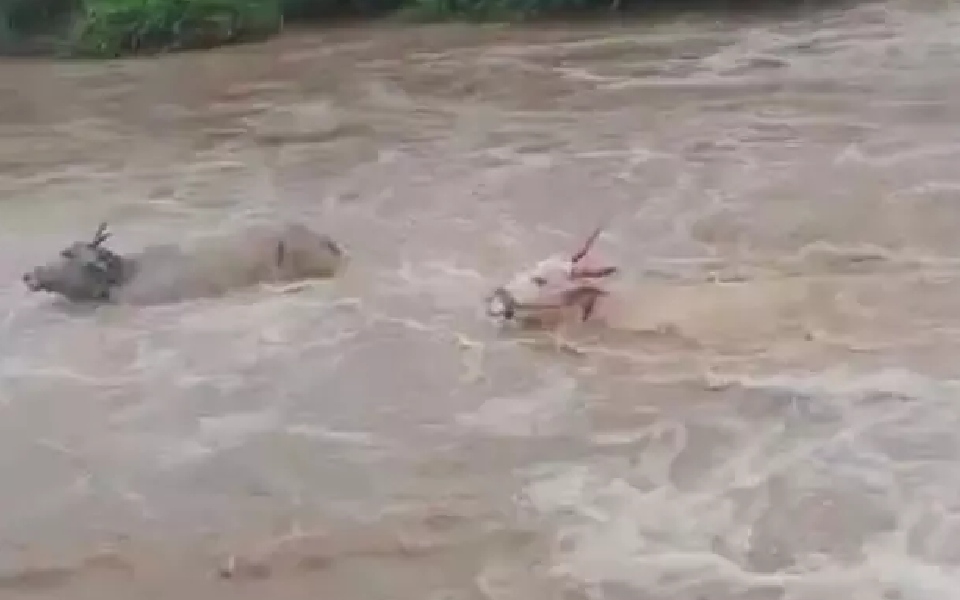New Delhi (PTI): At least 20 candidates have been debarred from appearing for Joint Entrance Exam (JEE)-Main for a period of three years for using "unfair means" in the examination, the National Testing Agency (NTA) said on Wednesday.
The decision by the NTA comes amid an ongoing Central Bureau of Investigation (CBI) investigation into the alleged manipulation of fourth edition of JEE-Main, conducted from August 26 to September 2.
"On account of using 'unfair means', 20 candidates have been debarred from appearing in future examinations for a period of three years. Their results have also been withheld," the said in a statement announcing the result.
The agency did not comment on whether debarring of these students had any connection with the ongoing investigation.
A record 44 candidates have scored 100 percentile in the engineering entrance exam JEE-Main this year while 18 candidates have shared the top rank.
Last year, 24 candidates had scored 100 percentile.
Starting this year, JEE-Main was conducted four times a year to offer flexibility to students and a chance to improve their scores.
Over 9.34 lakh candidates appeared in four editions of JEE-Main. A total of 2.52 lakh common candidates had appeared for all four editions of the exam.
A total of 6.58 lakh male candidates had appeared for the exam while the number of female candidates appearing for the exam was 2.80 lakh.
The ranks of the candidates have been released taking into consideration the best of the four NTA scores in accordance with the policy already made.
Let the Truth be known. If you read VB and like VB, please be a VB Supporter and Help us deliver the Truth to one and all.
New Delhi: In a rare and widely discussed outreach, Rashtriya Swayamsevak Sangh (RSS) chief Mohan Bhagwat met over 50 Muslim religious leaders and scholars at Haryana Bhawan in New Delhi on Thursday. The three-and-a-half-hour meeting was hosted by Umer Ahmed Ilyasi, the Chief of the All-India Imam Organisation, and is being described by some as an effort to build bridges between India’s majority and minority communities.
But Ilyasi, who facilitated this high-profile interaction, is no stranger to public attention—or controversy. His political and religious statements over the years have drawn criticism from several quarters within the Muslim community, prompting fatwas, threats, and frequent allegations of pandering to majoritarian narratives.
The meeting with Bhagwat, which included representatives from Deoband Madrasa, the Chief Imams of Gujarat and Haryana, and the Grand Muftis of multiple states, was framed as a trust-building initiative. “We may follow different faiths, but we are all Indians,” Ilyasi told IANS, describing the dialogue as a platform to promote national unity and social cohesion.
However, many observers have noted that this is not the first time Ilyasi has aligned himself with positions that are seen as diverging sharply from mainstream Muslim sentiments.
Statements That Stirred Reactions
In 2017, speaking to reporters in Indore, Ilyasi called for a nationwide ban on cow slaughter and demanded that the cow be declared a national animal. While he also condemned mob lynchings related to beef consumption suspicions, his support for a uniform cow protection law was received critically within sections of the Muslim community, where beef consumption remains culturally and religiously permissible.
His support for the ban on mosque loudspeakers during a 2022 interview with ANI was another instance that did not sit well with several Muslim clerics and organisations. Around the same period, he controversially linked the Karnataka hijab row to interference from “foreign bodies and terror groups like Al-Qaeda,” saying such events were attempts to “malign the country.”
In March 2025, on the occasion of Eid-ul-Fitr, Ilyasi released a video urging Muslims not to offer prayers on public roads, calling instead for discipline and restraint in religious observances. While the appeal may appear practical to some, others saw it as aligning with growing pressure from right-wing groups who object to public prayers by Muslims.
The backlash against Ilyasi’s public statements has been strong and visible. In January 2024, after his visit to the Ram Mandir ceremony in Ayodhya, a group of muftis issued a fatwa against him, branding him a ‘kaafir’ (infidel) and demanding an apology. Ilyasi dismissed the criticism, stating bluntly that India is not an Islamic state and Sharia law does not apply here.
His earlier praise for Mohan Bhagwat in September 2022, calling the RSS chief the “Rashtra Pita” (father of the nation) and “Rashtra Rishi” (national sage), had sparked severe backlash and even death threats. Multiple reports confirm he received “Sar Tan Se Juda” (beheading) threats from within the Muslim community. Despite these, Ilyasi stood firm, publicly saying that those who could not tolerate his stand “should perhaps go to Pakistan.”
While Ilyasi holds the position of Chief Imam of the All India Imam Organisation, critics point out that the organisation is not widely representative of India’s diverse and decentralised Muslim religious leadership. Many prominent Muslim groups, including those from Deoband and Barelvi backgrounds, have either distanced themselves from his remarks or remained silent on his engagements.
He has also made headlines in the past with statements that left many confused. In one interview, he controversially claimed that Muslims are descendants of Lord Krishna, a remark that drew sharp reactions across religious lines and lacked theological grounding.
The recent meeting with the RSS, timed with the Sangh Parivar’s centenary celebrations and the 50th year of Ilyasi’s organisation, signals a broader strategy at play. While the optics may suggest communal harmony, critics say such outreach efforts often come with political subtext, especially when facilitated by figures with a record of leaning into government-aligned narratives.
During the Thursday meeting, according to sources, no specific issues such as the Gyanvapi case or hijab row were discussed. Instead, themes like national integration, social unity, and ongoing dialogue between communities were explored. Ilyasi later stressed that the meeting was not a conclusion, but a beginning of sustained engagement.
In the current climate of increasing religious polarization, the role of clerics like Umer Ahmed Ilyasi is bound to provoke debate. For some, he remains a divisive figure, whose positions do not reflect the broader concerns of Indian Muslims.





